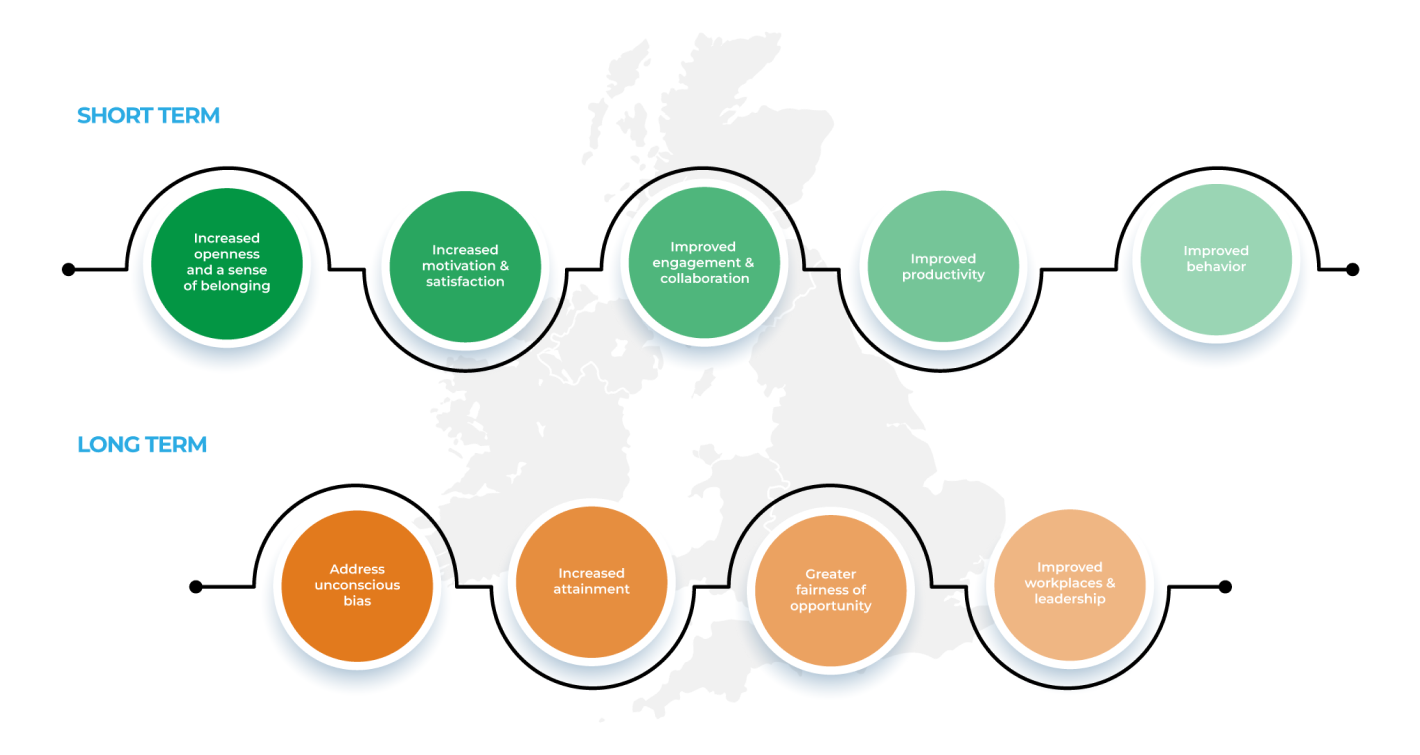Inclusion, diversity, and equality
What is inclusion, diversity and equality?
Fundamentally, inclusion, diversity and equality is about considering who is included, who is excluded and what mechanisms we can take to better include those who are excluded. In our modern society diversity is a core value. Ensuring young people respect differences of others, whether it be race, gender, disabilities, sexual orientation, or political viewpoints and understand the discrimination certain groups face based on their differences is key to ensure they go on to be upstanding citizens in the future. It’s also paramount that young people are given equal opportunities to flourish and achieve their full potential as every child and young person has the right to be free from discrimination.
Discrimination could be evident in various ways, from direct to indirect discrimination or harassment or victimisation (1). These four types of discrimination have real-life implications which is why our education spaces must adapt to include all students. Studies have shown that pupils which have special education needs (SEN) are more likely to have their education disrupted and life chances further affected by fixed-period exclusion from school (2). The Attainment Gap (2017) states that disadvantaged students are twice as likely to leave formal education without GCSEs in English and Maths than their classmates. Furthermore, children eligible for free school meals or children with SEN both have the highest educational attainment gap (3). Fighting discrimination, ensuring equality of opportunity starting in the education system are crucial to produce sustained successes and to empower these underrepresented groups.
Why is this important to Ormiston Trust?
Ormiston Trust has a moral and legal obligation to promote inclusion, diversity and equality; this is increasingly relevant in an increasingly diverse Britain. As a result, if we view schools and the educational system as a microcosm of society then we should establish and promote inclusion, diversity and equality to better prepare and protect students, especially in their developmental years. Investing in inclusion, diversity and equality programmes and protocols ensures that all forms of diversity are considered in the educational system which has positive impacts such as better integration both in the short, medium and longer-term in the lives of the students. Research shows that these initiatives promote better productivity, better morale, higher engagement and collaboration, and these benefits translate into the workplace which is important for the success of the students (4). Furthermore, one of OT’s core values is empowering others and we view inclusion, diversity and equality initiatives as a key step in order to achieve this.
Grant programmes examples: Inclusion, diversity and equality social action, diverse boards and staff, inclusion campaigns, anti-bias training, embedding inclusion, diversity and equality into policy and procedure.
Desired Outcomes:







